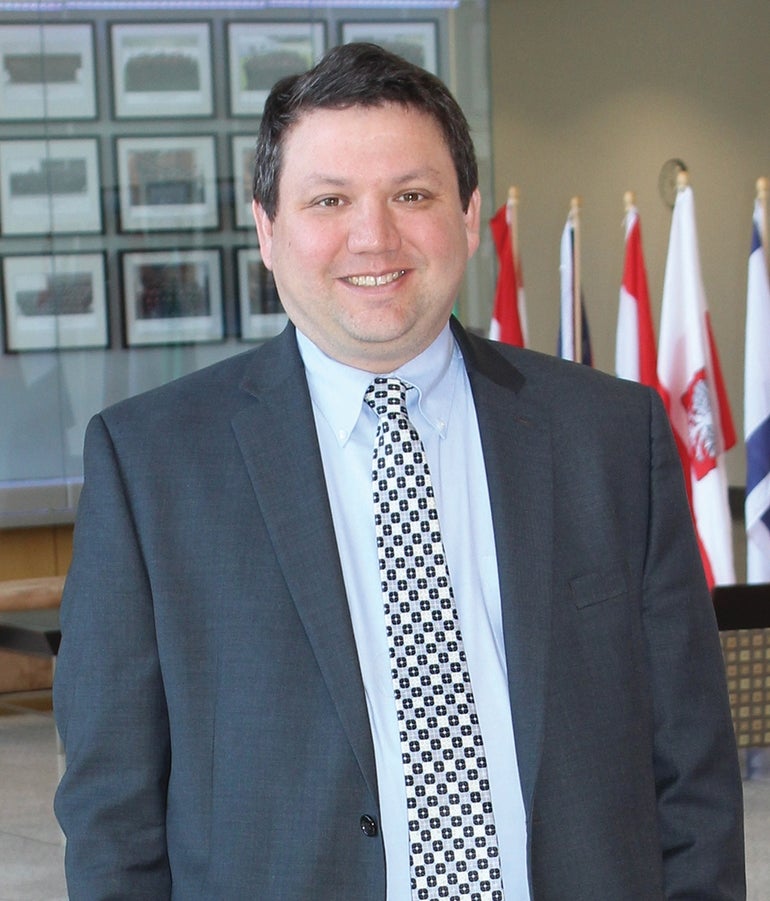New UMass chief nursing officer wants to continue community focus
 PHOTO/BRAD KANE
Justin Precourt, chief nursing officer, UMass Memorial Medical Center, Worcester
PHOTO/BRAD KANE
Justin Precourt, chief nursing officer, UMass Memorial Medical Center, Worcester
On April 22, UMass Memorial Medical Center named Justin Precourt its new chief nursing officer.
Precourt comes to UMass having served in nursing leadership positions at Floating Hospital for Children at Tufts Medical Center and Brigham & Women's Hospital in Boston.
What attracted you to UMass Memorial Medical Center?
As I looked at the opportunity at UMass Memorial, there is so much opportunity to build upon the excellence already here.
It is uniquely positioned in Central Mass and brings a lot of value to Worcester and the surrounding communities.
That puts it into a place where the other Massachusetts and New England academic medical centers aren't; they are clustered and compete for the same talent pool and patients.
This is very much academic medicine with a strong community focus.
That was a big selling point for me.
What do you want to bring to the position?
As a medical center, there has been a fair amount of turnover in the chief nursing officer role over the years – due to good reasons like retirements and promotions – so one of my main roles is to bring some stability and set the course out for us.
I need to get to know the teams and the people who support us.
Modern health care, particularly nursing, is incredibly complex, and it sometimes can take us extended periods of time to get to the outcomes we want.
Having stability will help us follow through on all those goals we set.
My hope is to stay for an extended period of time, so we can bring those things forward and get them rooted in the culture.
I know you just started, but what are your plans for UMass?
We need to look ahead to five years for who we want to be, where we want to be, and what we want to be known for.
Then we have to figure out how we are going to work together to get to those goals.
One of the biggest things we will do right away – which I identified early on – is getting out to the front-line nursing staff and asking them the questions about where we want to go as a medical center.
Then, the front-line staff will help us design the future.
How can you possibly get to know the 2,500 nurses at UMass?
One of the greatest challenges in nursing leadership today is the sheer number of people who fall under your purview and how you make a connection with all of them to stay relevant and build relationships.
I need to determine the best ways to communicate and get to know people, so I understand what they value and what is important to them.
Then they can learn what I value, and we can find that common thread, which is critical in providing excellent patient care and the best outcomes.
Most of the nurse managers, who are the next level below me, after been in their positions for a long time.
It is always helpful to have the institutional knowledge from a strong base of managers like them.
What value do you bring to the position?
I've spent the bulk of my nursing career in academic medicine, so understanding the complex relationships between medical centers and medical schools – like with research projects and everything else – is one of the things my experience has created a solid foundation for me.
Brigham & Women's and Tufts Medical Center had different organizational cultures and much different financial positions.
It helps me understand and learn to lead in multiple different environments.
It helped me build flexibility and creates an important curiosity framework, especially as I first start this position.
It will help us build success.
This interview was conducted and edited by WBJ Editor Brad Kane.













0 Comments